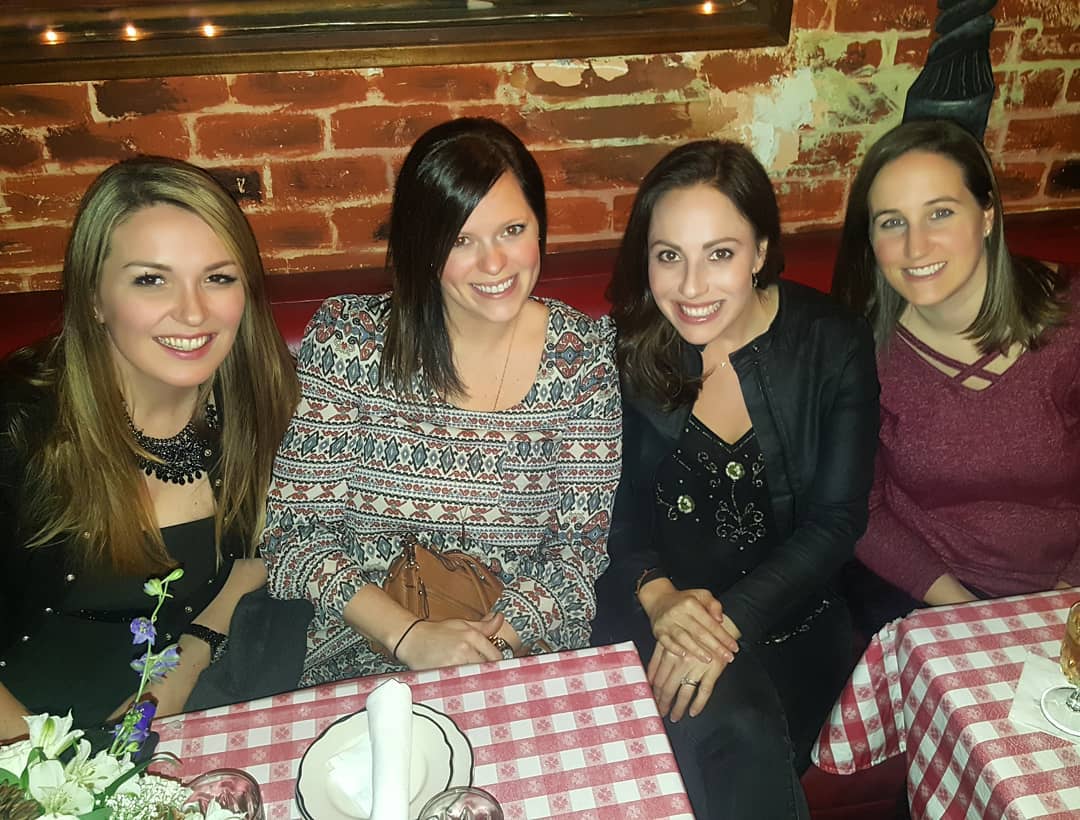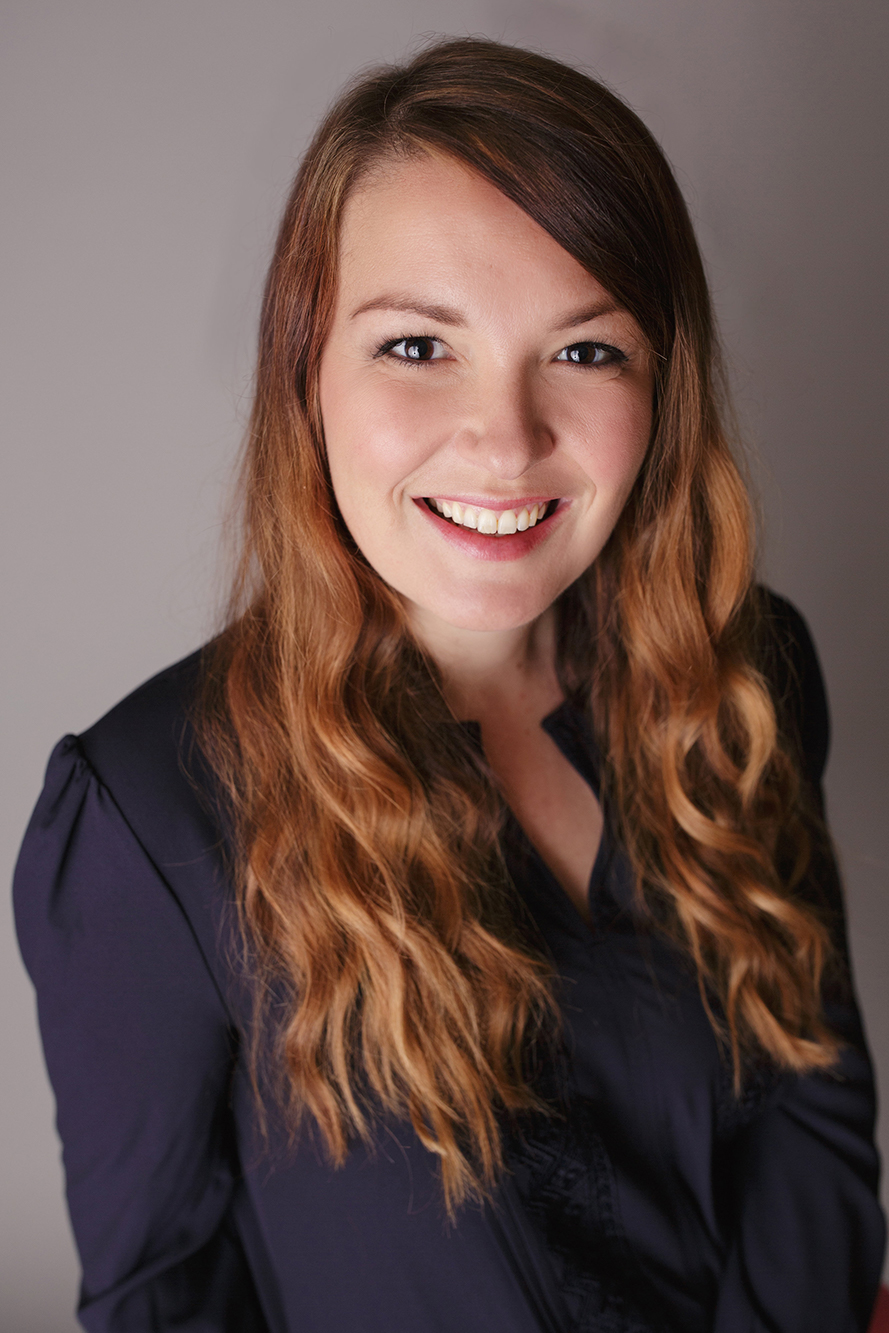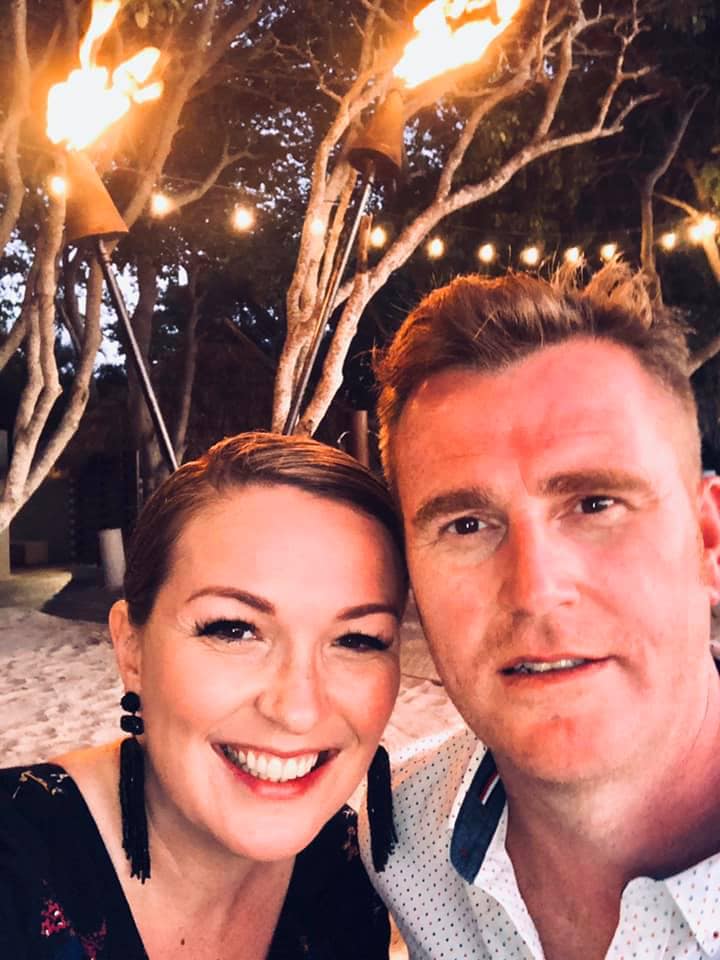How did you get there? Lisa Wilding-Brown

Awesome to hear from Lisa Wilding-Brown, Chief Research Officer at Innovate MR. Lisa is also an Insights Association Laureate, a WIRExec member, a WIRe mentor, a founding member of the Multicultural Insights Collective, and like me, is running for ESOMAR Council.
Morning-morning Lisa! Great to be able to catch up with you. Lets get right onto it shall we! So, how did you get into the industry, and take us through how you got to this point?
Thanks again for taking time to sit down with me James, albeit in a virtual setting! Like many in the industry, I “fell” into research nearly 20 years ago. While at university, I studied Journalism and International Relations with minors in Political Science & History. I didn’t have much familiarity with Market Research, nor was I privy to the big world of data….yet. If you had asked me then what I thought about Market Research, I would have told you that it typically involves a person flagging unsuspecting people in the mall with a paper survey!
When I was at college, the internet, or what we called the “World Wide Web” (ha!), was just starting to gain traction and hadn’t yet permeated our lives. Email was a new thing and students still relied on researching periodicals and journals via microfiche. Remember those days?! Following college, I think I suffered a bit of a quarter-life crisis – fresh off the heels of my parents’ salty divorce, I didn’t exactly know what I wanted to do with my life, and I felt an intense amount of self-imposed pressure to “become” the person I felt the world was expecting me to be. Frozen by a fear of failure, I did what most aimless college grads do – I went on the run! With a few hundred dollars in my pocket, I landed in Dublin, Ireland, intending to stay for a few months but I ended up staying for nearly 3 years. This was an incredibly impactful time in my life and I even scooped up my husband, Alan, in the process! While the travels were fun, I knew I had to get back home to the states to start my corporate career and “adult.” Though, I will say that waiting tables and bartending for many years during my youth taught me the importance of hard work, patience, multi-tasking, as well as stellar customer service.

Shortly after arriving back in the states, my mother told me that I had to “network.” These were pre-LinkedIn times, so I had no idea what “networking” really was! After several failed attempts to land a job in journalism, and several months of unemployment, I felt defeated and strapped for cash. Luckily, I connected with a friend who worked at Harris Interactive (look Ma, I’m networking!) and I submitted my resume for a role in project management – the rest is history. I didn’t realize it at the time, but there are so many synergies between journalism and market research. I am incredibly curious and I have my mother’s knack for asking questions. I love figuring out what makes people tick. To me, that is the very ethos of what a good researcher should embody.
While at Harris, I had the opportunity to work in the company’s first online research team. There was no playbook back then as online research was a new and emerging methodology. As such, I worked closely with the survey methodology team conducting research-on-research and designing survey instruments to help shepherd existing offline studies into an online practice. We did encounter some methodological resistance (research, by nature, can be a very risk-adverse discipline) but it was incredibly rewarding to help our clients tap into this new online arena and formulate the playbook for others.
I am so thankful to have cut my teeth at Harris, as many consider this firm to be the pioneer of online research; the level of scientific rigor was truly second to none and I was fortunate to learn from some of this industry’s original data giants. After six years at Harris serving roles in operations, research, and online sample management for the Harris Poll, the global recession of 2008 hit. This was a particularly trying time for our industry and I felt it was time to look for other opportunities. Prior to my exit, I had the opportunity to attend one of my first ESOMAR conferences. I didn’t know anyone at the conference, and I remember feeling incredibly intimidated – it seemed everyone at the event were BFFs except for me. It was awks and I dreaded the network sessions. The thought of talking to random people felt very foreign to me.
As I sat in the back of that dark ballroom, I made a promise to myself: I would someday be on that stage presenting and I would make a point to go to more events, resisting the apprehension I felt in that moment. It was a quiet little pact that I made with myself that day, and I never looked back.
Shortly thereafter, I made contact with Matt Dusig via a mutual connection who knew I was on the lookout for a new opportunity. Yay, networking again! This chance introduction set my path in motion. I went from working at a large and traditional global research firm to uSamp (a sampling technology start-up) based in Los Angeles. Matt and I still joke that I had to be deprogrammed a bit. Working at a start-up is light years away from working at a conservative institution like Harris. At uSamp, I became an entrepreneur in every sense of the word – I learned all aspects of what it means to build and manage a global business. As an executive member of the team, I worked closely with new and existing clients, built new technology solutions to support agile research requests, developed mobile research as a new methodology, and led the company’s global panels and research-on-research efforts. uSamp was a thrilling five-year ride, but after a few rounds of VC funding, several of us decided to leave to start InnovateMR. Seven years later, InnovateMR is still going strong. I am incredibly proud of our growth, especially as a self-funded and independently-owned research firm. As Chief Research Officer, I am an executive member of the company and I oversee the company’s thought leadership and quality best practices, and I work closely with our sales, marketing, product, and operations teams. I have the perfect job, literally. I work with amazing colleagues and inspiring clients; pursuing research efforts that I am exceptionally passionate about.

And if you had to distil everything you’ve achieved right down, what would you say are three secrets to your success so far?
- Never stop learning. Consider yourself a lifetime student. Ask questions and seek out opportunities to ascertain new skills. I waited a long time to get an invite for the conference circuit which can be frustrating and unfair to young researchers or those in operational roles. While you still have to navigate the politics of in-person events, really take advantage of the virtual world we are living in. Conferences have been exceptionally democratized since the pandemic – TAKE ADVANTAGE. ATTEND. MEET PEOPLE.
- Never make assumptions. We are in research for a reason! Making assumptions or inferring what we believe to be true can be a slippery slope. Let DATA guide your decision-making. We are human – we make mistakes: check your work, and then check it again and again. QUALITY COUNTS.
- Do things that make you UNCOMFORTABLE. A comfort zone is a beautiful garden, but nothing ever grows there! All too often, we let fear impede our growth and prevent us from reaching our fullest potential. Take risks. Put yourself out there. Just do it. Yes, it might be scary, and you may not be perfectly credentialed, but who is? Stop waiting for permission or the “perfect” time. Imagine how great you will feel on the other side of scary!
- Ok, James, I know you asked for my top 3, but I’ve got 4. Don’t underestimate the power of social intelligence and the importance of creating real and meaningful CONNECTIONS. Know your audience. Listen. Understand what makes people tick, what they care about, and what is troubling them. And then care about it. I mean, really care.
Oh, you can keep going! So, come on, if you’re allowed to say, what’s the most interesting, crazy, fun project you’ve ever worked on?
When I was at Harris on the panel team in the early 2000s, we started using online panels to conduct IHUTs. I once recruited people to participate in a toilet IHUT. Qualified participants had a toilet shipped (literally!) to their home and our client provided guidance on installation. From there, a longitudinal study was conducted each month capturing the experiences participants had using the toilet. I kid you not, true story!
Anything and everything is possible in research!
Not being in the office and around colleagues, it is incredibly challenging, for younger researchers to stand out. What two bits of advice do you have for a junior researcher, working from home in lockdown, on how they can best stand out and impress their teams?
Attend as many virtual conferences as you can. There are a ton of free webinars and panel discussions happening on the daily. Carve out time to attend. If the day gets away from you, register, and view the recording when you can make time. Don’t stop there. Sharing is caring. Did you learn something new? Don’t be a hoarder! Share this knowledge with others at your company. 1) Leadership will take notice that you are seeking out new learning opportunities and 2) you will help others around you. You are only as strong as your weakest link – invest in helping others: everyone benefits and you look like a star in the process.
Find a mentor, heck, find several mentors!
I have been a mentor for several years through Women in Research’s Mentorship Program. This is an incredible program that will help build your network and upgrade your skills and knowledge. When I started my career, there were no formal mentorship programs, but I had several informal mentors that really helped me along the way. Don’t be afraid to ask for guidance and don’t forget the importance of hard and soft skills. For example, being well versed in the latest analytical tools is brilliant, but if you can’t read the room or create meaningful connections with people, your potential will be capped.
And thinking more long term now, what two things should junior researchers focus on as they progress in their careers?
Stay curious and don’t get complacent. Human beings love to feel safe and secure – don’t we all?! However, if your current role doesn’t excite you or the company you work for doesn’t support your aspirations, take stock in that and make changes. All too often, people stick around in unhappy situations because they are afraid of uncertainty.
Some of the best outcomes in my life were brought about by taking a risk.
Do you have a colleague or industry role model that seems to have it all figured out? I can promise you that they have moments of self-doubt where they feel like a complete and utter imposter. The difference is that they punched that metaphorical imposter in the throat and got on with it. I’ll never forget the first time I got up on stage to speak at a conference. My heart was literally pounding out of my chest. My palms were sweaty. I could feel the physicality of my nerves getting to me. I could hear a little voice in my head saying, “Better not screw it up, Lisa!” Then, I reminded myself, everyone gets scared. It’s human nature. Get on with it. Harness that seemingly unbridled energy to show the audience just how truly passionate you are! Just do it!
Building a personal brand can seem overwhelming and super foreign, but it is less about intensity and more about consistency. It’s the little steps day in and day out that build cumulatively over time. Before you know it, you will have the career that you envisioned for yourself and you will have met some incredible people along the way.

You’re running for ESOMAR Council, congratulations! What is your key message and how do you plan to make a difference?
Thanks for asking James – you are super generous to give me a platform to share my story and my thoughts for the future. I would be incredibly honored to be elected to the council and it would be a thrill to serve alongside you as well. Here’s hoping that we both get elected! (Amen!)
Diversity & Equity:
Despite our accelerating technology and the best of intentions, there are still painful and dangerous silos that exist, presenting important opportunities for our industry to evolve and change. When I started my research career, many of the associations that existed back then felt like a private country club reserved for well-established professionals and c-suite executives exclusively. Luckily, researchers today have access to a multitude of resources and communities to contribute to and to learn from. However, our work here is not done. I am deeply troubled by the lack of diversity in our industry and in our insights. I am a founding member of the Multicultural Insights Collective, which is a group of thought leaders and industry experts which have set out to tackle discrimination and inequity through the lens of research. As a sample expert, there are material actions that are being overlooked every day in our industry’s work or have remained static for decades. That is incredibly concerning. As a result, important voices are being stifled and underrepresented. As a council member, I would help develop advanced standards around diversity and multicultural research and provide our global community with specific guidance on how best to galvanize these standards into their day-to-day work.
Participant Experience:
As a professional who conducts a great deal of research-on-research, we have some abysmal habits that need to be addressed in our sampling practices and survey design. I often liken our participant universe to the polar icecaps – once they are gone, they are gone! We need to continue to socialize the importance of participant health and work together as a global community to improve our survey instruments, expand our sample universe as well as explore and embrace 3rd-party data integrations, standardized nomenclature and recognize the vital role of data science within our eco-system.
Quality:
Quality is at the heart of everything we do. Of course, no one sets out with the intention of producing poor quality insights. However, all too often there are painful gaps in our understanding, a lack of empathy, inherent biases that color our thinking, and external forces such as cyberfraud that negatively impacts the work we do. Ultimately, this degrades the quality that we produce. We need to help our community navigate these challenges through open and transparent discussions, ongoing education, and enhanced global standards as our industry continues to mature and evolve. When I first started in research, we called ourselves “market researchers,” then our self-identification progressed to “insights professionals,” and now it’s all about “foresight” – understanding context, truly activating our learnings, and maintaining a seat at the table through committed and active empathy and future-proof thinking. This entire dynamic is operating in an incredibly sophisticated ecosystem with an insatiable appetite for data. I am committed to helping our industry improve quality best practices and supporting the next generation of researchers as they navigate these unchartered and ever-changing waters.
Inspiring stuff Lisa!
And do you have anyone who has helped your career so far that you’d like to acknowledge and say thanks or give a shout out to?
I’ve been lucky to have several mentors and supporters in my corner! A big shout out goes to the OGs of online research: Randall Thomas, a brilliant and incredibly thoughtful disciple of research-on-research and online survey design. Renee Smith, a hero of research ethics with an unrelenting commitment to quality. Mark Menig, a dark web guru and quality ninja. Andrew Cannon, a global ambassador for participant experience and a joyful living phenom. Kristin Luck, a champion for equity in the insights industry, a role model and invaluable confidant. Matt Dusig, for betting on me all those years ago, igniting the entrepreneur in me, and supporting me every step of the way. Gregg Lavin, who taught me to be fearless – break some glass and take risks. George Llorens, who helped me to decipher the ‘question behind the question’ and to always have faith in myself and my instincts. My fellow partners from the Multicultural Insights Collective, for sharing your perspectives and driving much needed change in our industry. To my WIRexec pals, you have given me so much inspiration and support through the years, no words do you all the justice you deserve. And to the rest of my InnovateMR family, for being just that – work colleagues, yes… but family too.
Thanks Lisa, so lovely to hear your story. So much in here for junior researchers and the rest of us! Best of luck with the ESOMAR Election!
